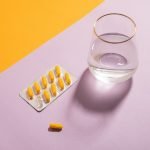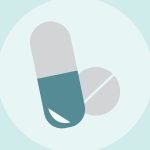Do psychedelics really work to treat depression and PTSD? Here’s what the evidence says
As of July 1, authorised psychiatrists have been allowed to prescribe MDMA (the chemical found in “ecstasy”) to treat post-traumatic stress disorder (PTSD), and...
Air pollution: the invisible threat to our mental health
Air pollution is like an invisible monster that might be messing with our minds. That's what a new study says.
This study was published in...
Hard heads, heavy hearts: the unusual twist in depression after brain injuries
If you hit your head real hard and feel blue later, it might be more than regular sadness. It could be a different type...
Understanding the emotional ‘blunting’ effect of common depression drugs
A study from the University of Cambridge has revealed why common antidepressants, specifically selective serotonin reuptake inhibitors (SSRIs), cause emotional "blunting" in about half...
Levodopa, a Parkinson’s drug, may help depression linked to inflammation
A groundbreaking study conducted by Emory University researchers has shown that Levodopa, a drug used to treat Parkinson's disease, can potentially reverse inflammation's effects...
Depression after traumatic brain injury: a unique disorder?
A study led by Dr. Shan Siddiqi from Brigham and Women's Hospital suggests that depression after a traumatic brain injury (TBI) could be a...
Sleep deprivation can improve mood in some people with depression
In a seemingly contradictory phenomenon, sleep deprivation can sometimes lead to mood improvements in individuals with depressive disorders, a study led by the Perelman...
Cracking the code of depression: the brain fold factor
Depression, or major depressive disorder (MDD), is a really tough mental health issue that affects a lot of people.
It's a tricky beast to understand...
Feeling blue may make your heart skip a beat: the link between depression and...
If you are having a device for your heart put in and feel down, you might find it harder to keep taking your heart...
People with obsessive-compulsive disorder have an imbalance of brain chemicals – our discovery could...
People often jokingly say they’ve “got a bit of OCD” (obsessive-compulsive disorder) if they are overly organised or tidy.
But OCD is actually a severe...










